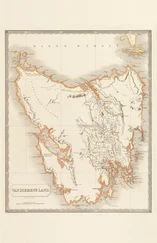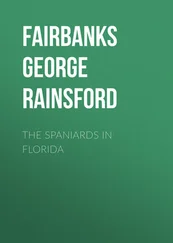Joshua Giddings - The Exiles of Florida
Здесь есть возможность читать онлайн «Joshua Giddings - The Exiles of Florida» — ознакомительный отрывок электронной книги совершенно бесплатно, а после прочтения отрывка купить полную версию. В некоторых случаях можно слушать аудио, скачать через торрент в формате fb2 и присутствует краткое содержание. Жанр: foreign_antique, foreign_prose, на английском языке. Описание произведения, (предисловие) а так же отзывы посетителей доступны на портале библиотеки ЛибКат.
- Название:The Exiles of Florida
- Автор:
- Жанр:
- Год:неизвестен
- ISBN:нет данных
- Рейтинг книги:5 / 5. Голосов: 1
-
Избранное:Добавить в избранное
- Отзывы:
-
Ваша оценка:
- 100
- 1
- 2
- 3
- 4
- 5
The Exiles of Florida: краткое содержание, описание и аннотация
Предлагаем к чтению аннотацию, описание, краткое содержание или предисловие (зависит от того, что написал сам автор книги «The Exiles of Florida»). Если вы не нашли необходимую информацию о книге — напишите в комментариях, мы постараемся отыскать её.
The Exiles of Florida — читать онлайн ознакомительный отрывок
Ниже представлен текст книги, разбитый по страницам. Система сохранения места последней прочитанной страницы, позволяет с удобством читать онлайн бесплатно книгу «The Exiles of Florida», без необходимости каждый раз заново искать на чём Вы остановились. Поставьте закладку, и сможете в любой момент перейти на страницу, на которой закончили чтение.
Интервал:
Закладка:
In pursuance of this treaty, the President promptly appointed a commissioner to ascertain the amounts due the several claimants. But great difficulties had to be encountered. The claims commenced in 1775 and extended down to 1802, and it was extremely difficult to obtain evidence of facts which transpired so long prior to the examination. Sufficient proof was produced, however, to satisfy the commissioner that ninety-two slaves had, within the periods mentioned, left their masters, in Georgia, and fled to the Indians; and the estimated value of slaves and other property lost to the owners in this manner, amounted to one hundred and nine thousand dollars. 54 54 Vide Report of Commissioner on this subject; also, the Report of Wm. Wirt, Attorney General of the United States, to whom the President referred the subject. “Opinions of the Attorney General,” 1822. Mr. Wirt states the price paid for those slaves was from two to three times their real value.
This amount of money was duly appropriated by Congress. So far as we are informed, no member of the House of Representatives, or of the Senate, appears to have entertained doubts as to the propriety of this governmental slave-dealing. The whole negotiation and arrangement had been conducted and managed by Southern men, and Northern statesmen quietly submitted. Thus, after a struggle of thirty-eight years, the Slaveholders of Georgia, by the aid of our Federal Government, obtained compensation for the loss of their fugitive bondmen.
After the distribution of the amount found due to the claimants, there yet remained in the hands of the President one hundred and forty-one thousand dollars, being the remainder of the two hundred and fifty thousand appropriated by the treaty to secure the payment of these claims. This money apparently belonged to the Indians. The claimants for slaves could not have any title to it, for they had expressly stipulated, that the award of the commissioner should be conclusive upon the parties. The claimants, by that award, received full compensation for their loss; yet they next demanded of the President the hundred and forty-one thousand dollars which remained in his hands. Notwithstanding the commissioners on the part of Georgia expressly agreed to abide by the award, and had assigned all interest in the property and in the persons residing with the Indians, to the United States, and had received their money in full, under the treaty; yet they desired to get the remainder, which was considerably larger than the amount awarded them by the commissioner.
CHAPTER VI.
FURTHER EFFORTS TO ENSLAVE THE EXILES
Indians and Exiles on the Appalachicola River – Other Exiles at Withlaeoochee, St. John’s, Cyprus Swamp, Waboo Swamp – Indians in various parts of Territory – Difficulty of the subject – President’s Message – Committee of Congress – Interrogations – Mr. Penieres’ Answer – General Jackson’s Answer – He relies on Force – United States recognize the Florida Indians as an Independent Band – Willing to treat with them – Difficulties – Instructions to Commissioners – Treaty of Camp Moultrie – Reservations – Covenants on part of United States – Covenants on part of the Seminoles – Congress makes no objection – Effect of Treaty – Its Objects – Election of the younger Adams – His Policy – Indian Agent, Colonel Humphreys – William P. Duval’s Instructions – Claimants complain of the Agent – Commissioner of Indian Affairs reproves him – His Letter – Reply – Difficulty of Agent – Dangers which threaten the Exiles – Colored Man seized and enslaved – Indians Protest – Colonel Brooke’s Advice – United States Judge expresses his Opinion – Effect on Exiles – Mrs. Cook’s Slave – Demand for Negroes – Suggestions of Agent – Practice of Government – Treaty of Payne’s Landing – Its Stipulations – Abram – His Character – Chiefs become Suspicious – Delegations sent West – Executive Designs – Supplemental Treaty – Major Phagan – Petition of the People of Florida – Indorsement thereon – Treaties approved by Senate – Creeks remonstrate – Payment of $141,000 to Slave Claimants – Supineness of Northern Statesmen – Creeks demand Exiles or Slaves – Georgians kidnap Exiles – Their Danger – They dissuade from Emigration – Their Warriors – Wiley Thompson’s Statement – General Clinch’s Interest – Colonel Eaton’s Views – General Cass’s Reply – His Address to Indians – He authorizes Slave trade – Effects of such License – Agent and others Remonstrate – He replies – Agent rejoins – Exiles prepare for War.
After the close of the war of 1818, many of the Seminole Indians took possession of the deserted plantations and villages along the Appalachicola River, whose owners had fallen in the massacre of Blount’s Fort, in 1816; and some of the Exiles united in reoccupying the lands which had been reduced to cultivation by their murdered brethren. Some six or eight small bands of Indians thus became resident along that river. The fertile bottom lands, near that stream, constituted the most valuable portion of Florida, so far as agriculture was concerned. These towns afforded convenient resting places for fugitive slaves, while fleeing from their masters in Georgia, Alabama, Tennessee and Louisiana, to the interior portions of Florida.
The United States, nor the slaveholders of the States named, could with any propriety whatever hold the Creek Indians responsible for the many refugees, who were now almost daily increasing the number of fugitives located far in the interior of Florida; and the difficulties attending the holding of slaves increased in exact proportion as the slaveholding settlements extended towards these locations; while the greater portion of the Exiles were taking up their residence farther in the interior of the territory, upon the Withlacoochee, the St. John’s, the Big Cypress Swamp, the Islands in the Great Wahoo Swamp, and places far retired from civilization. The Seminole Indians were scattered extensively over different portions of the country; and although the United States now owned the unoccupied lands, it was difficult to determine upon any course of policy by which the difficulties, so long existing, could be terminated.
The subject was alluded to by the President in his Annual Message to Congress (Dec. 3), and a select committee was appointed to take that portion of it into consideration. The committee propounded interrogatories to various officers of government, who were supposed capable of giving useful information in regard to the subject. 55 55 Vide Reports of Committee XVIIth Congress, 2d Session, No. 125.
In answer to these interrogatories, Mr. Penieres, Sub-Agent for the Florida Indians, replied, stating the number of Indians at more than five thousand, while the number of slaves which they held were estimated at only forty. These he declared to be far more intelligent than the slaves resident among the white people, and possessing great influence over their Indian masters. He alluded to the Exiles in the following language: “It will be difficult (says he) to form a prudent determination with respect to the ‘maroon negroes,’ (Exiles), who live among the Indians, on the other side of the little mountain of Latchiouc. They fear being again made slaves, under the American Government, and will omit nothing to increase or keep alive mistrust among the Indians, whom they, in fact, govern. If it should become necessary to use force with them, it is to be feared that the Indians will take their part. It will, however, be necessary to remove from the Floridas this group of freebooters, among whom runaway negroes will always find a refuge. It will, perhaps, be possible to have them received at St. Domingo, or to furnish them means of withdrawing from the United States!”
Читать дальшеИнтервал:
Закладка:
Похожие книги на «The Exiles of Florida»
Представляем Вашему вниманию похожие книги на «The Exiles of Florida» списком для выбора. Мы отобрали схожую по названию и смыслу литературу в надежде предоставить читателям больше вариантов отыскать новые, интересные, ещё непрочитанные произведения.
Обсуждение, отзывы о книге «The Exiles of Florida» и просто собственные мнения читателей. Оставьте ваши комментарии, напишите, что Вы думаете о произведении, его смысле или главных героях. Укажите что конкретно понравилось, а что нет, и почему Вы так считаете.












